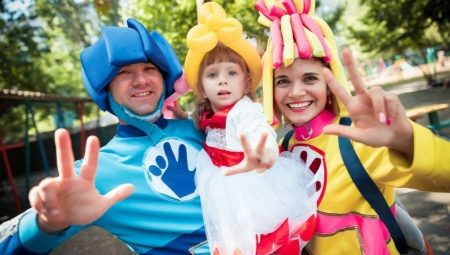The atmosphere of any holiday or entertainment event depends largely on the talent, experience and professionalism of the invited animators. Representatives of this complex but interesting creative profession not only control the course of the event, but also take an active part in its holding. What features are associated with the profession of animator? What knowledge and skills should this specialist have?
Who is that?
An animator is a person who is professionally involved in organizing and conducting social events in which he most often acts as a famous character. Usually in the profession of an animator people with their developed creative and artistic abilities find their vocation.
In addition, people who have received the appropriate education and have some experience in organizing and entertaining work with the audience (circus performers, theater and cinema actors, dancers, singers, musicians, accompanists) often come into this sphere of activity.
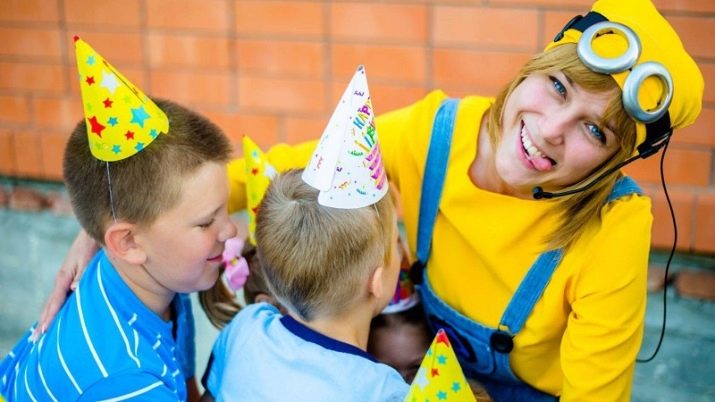
Despite the fact that the animator is considered a “universal” artist, able to work and interact with almost any audience, in this area of activity it is customary to distinguish profile areas. So, Based on the characteristics of the target audience, as well as the features of the planned event, in the described field of activity, we can distinguish specialists in such profiles as:
- corporate animator - An artist specializing in entertaining and festive events for an adult audience;
- children animator - An artist specializing in celebrations for children of preschool, primary and senior school age;
- hotel animator - An artist specializing in entertainment for hotel guests (hotel complex, sanatorium, dispensary);
- animator promoter - an artist specializing in conducting mainly promotional events (for example, marketing campaigns aimed at promoting a brand, product or service).
In some cases, the animator can work together with the host of the festive event, in others - independently, and in the third - together with creative groups (musicians, magicians, acrobats, dancers, mimes). An obligatory attribute of the animator is a bright stage costume, transforming it into a certain character - animated, literary, cinematic, historical.
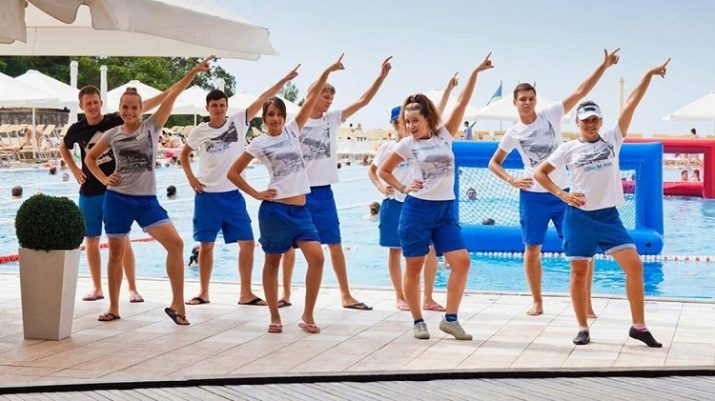
Job responsibilities
The list of duties of the animator is developed and approved by the leadership of a particular organization (cultural and entertainment center, hotel complex, event agency). In most cases, when compiling a job description, the provisions presented in the Unified Qualification Directory of Posts are used.
According to this source, the main labor functions of the animator include:
- organization and holding of cultural and entertainment events;
- development of scenarios for entertainment programs, celebrations, contests, competitions;
- organization and conduct of rehearsals;
- control over observance of the schedule of rehearsals and performances;
- selection and preparation of props, accessories, costumes and decorations for an animated presentation.
The ability to transform and improv distinguish a professional animator from an amateur. A professional makes his character lively, vibrant and emotional, forcing everyone present at the celebration to believe in its realism. Such professional skills, according to experienced animators, are formed and improved over many years of work in this field of activity.
At the same time, the formation and improvement of professional skills of the animator is much faster in the case when a person by nature has creative abilities, extraordinary thinking, artistry and sociability. Such inclinations in the field of animation are considered very important.
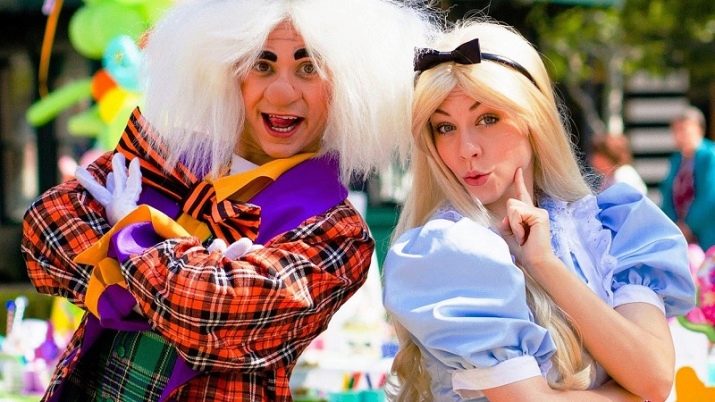
Knowledge and skills
Work as an animator requires from a person not only enormous industriousness and skill, but also specific knowledge. So, a person employed in this field of activity should have deep knowledge in such areas as:
- acting skills;
- choreography;
- oratory;
- psychology;
- conflict management;
- pedagogy;
- ethics of communication (speech etiquette);
- fire safety equipment.
It should be noted that the animator must perfectly know the stories of his characters, their features, advantages and disadvantages. Such specific knowledge will make it possible in the future not only to easily get used to a given image, but also to improvise without difficulty, going beyond the script in unforeseen situations.
Besides, representatives of recruiting agencies consider it highly desirable for the animator to have a number of skills:
- ability to work with lighting equipment;
- ability to work with musical equipment;
- ability to work with portable computer equipment and storage media;
- skills in working with photo and video equipment.

Among other skills that may be useful to the animator at work, it is worth noting such as:
- drawing skills;
- ability to sing and move beautifully;
- possession of musical instruments (guitar, harmonica, balalaika, rattle);
- ability to work with stage props (balloons, ribbons, lanterns);
- skills in applying professional makeup (face painting).
Experienced animators believe that success in this difficult field of activity also depends on personal qualities. Success in this field is possible only for a sociable, friendly and positive person who is not shy about implementing the most unexpected creative ideas.
At the same time, the profession of an animator requires patience, diligence and determination, the ability to plan, analyze and control work processes from a person. Among other requirements for animators, it is also worth noting such as:
- high reaction rate;
- self-control and self-discipline;
- high level of self-organization;
- responsibility;
- confidence;
- stress resistance;
- ability to improvise in unforeseen circumstances;
- rich imagination;
- sense of humor and good visual memory.
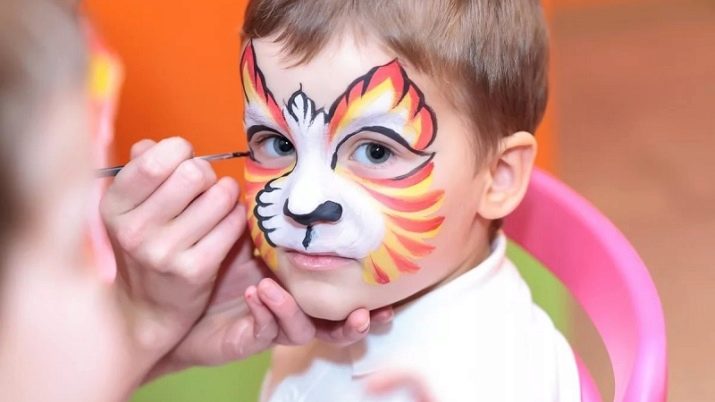
Education
To become an animator, it is enough to get a higher or secondary professional education (humanitarian, pedagogical, theatrical). The average duration of study at a university or university can vary from 2 to 5 years. The list of subjects that must be taken upon admission to a higher or secondary specialized educational institution is standard and most often includes the following disciplines:
- Russian language;
- literature;
- mathematics (history, social studies - for the humanities).
The exact list of subjects depends on the specialty and the requirements of the educational institution where the applicant plans to enter. Upon admission to a theater or circus school, you will additionally need to pass an exam in physical education. You can get specialized education in the specialty "Animator" (organizer of festive and entertainment events) in special private schools and training centers. In addition to basic training, such organizations offer continuing education courses for animators who want to improve their professional level.
You can study the profession of an animator or improve your current qualifications in these organizations for 1.5-3 months. During this time, students of the courses gain skills in working with stage props, face painting, technical equipment.
Training is carried out only on a fee basis.
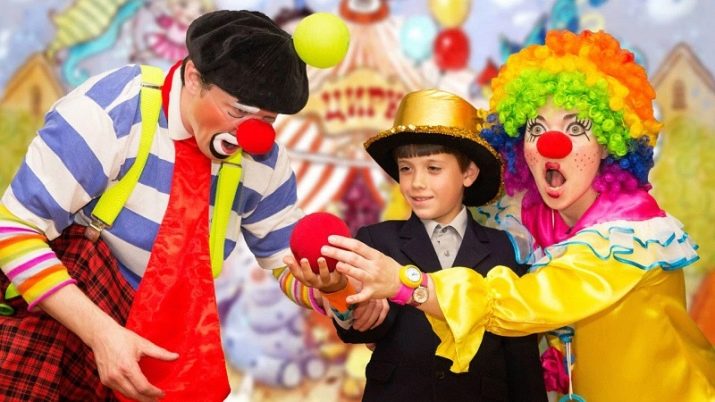
Workplace and salary
Animators are visiting artists capable of working with an extensive audience in almost any environment. Usually the animator’s mobile workstation is represented by a small portable stage (podium) equipped with lighting fixtures and a set of auxiliary equipment.
One of the significant drawbacks of this profession is considered to be unstable earnings. In most cases, periods of “downtime” in the animator’s work schedule occur at the very beginning of his creative career. Experienced animators who have won the love and trust of the public, work schedules are usually scheduled for several months in advance.
This profession provides hourly wages. The more experienced the animator, the correspondingly more expensive his bid. So, in Moscow, representatives of this profession earn in 1 hour from 1.5 to 7 thousand rubles. In St. Petersburg, the average hourly rate for an animator varies from 1 to 3 thousand rubles. The greatest income is received by animators working without intermediaries and offering their services to the customer directly.
The payment system of specialists fixed in the staff of agencies and leisure centers looks somewhat different. In this case, the income of the animators is equal to their monthly salary set by the organization’s management. Metropolitan event-agencies pay full-time animators from 40 to 50 thousand rubles a month.
The highest earnings receive animators acting abroad. So, many large hotels in Turkey, the United Arab Emirates, China conclude work contracts with professional animators who speak a foreign language (English, Chinese).
The average salary of a specialist in this case can vary from 1.5 to 2 thousand US dollars per month.

